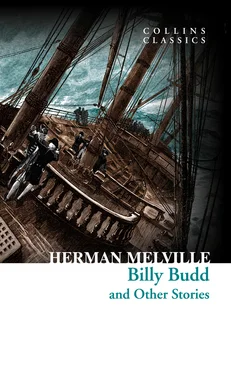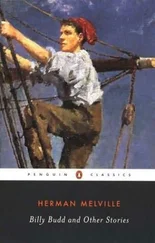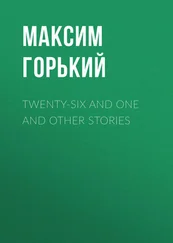BILLY BUDD AND OTHER STORIES
Herman Melville

William Collins
An imprint of HarperCollins Publishers
77–85 Fulham Palace Road,
Hammersmith, London W6 8JB
WilliamCollinsBooks.com
This eBook edition published by William Collins in 2014
Life & Times section © HarperCollins Publishers Ltd Gerard Cheshire asserts his moral right as author of the Life & Times section Classic Literature: Words and Phrases adapted from Collins English Dictionary
Cover by e-Digital Design
Cover image: On deck of a Man-of-War, Eighteenth Century . Engraving, 1878 © duncan1890/iStock
A catalogue record for this book is available from the British Library
All rights reserved under International and Pan-American Copyright Conventions. By payment of the required fees, you have been granted the non-exclusive, non-transferable right to access and read the text of this e-book on-screen. No part of this text may be reproduced, transmitted, down-loaded, decompiled, reverse engineered, or stored in or introduced into any information storage and retrieval system, in any form or by any means, whether electronic or mechanical, now known or hereinafter invented, without the express written permission of HarperCollins
Source ISBN: 9780007558193
Ebook Edition © August 2014 ISBN: 9780007558209
Version: 2014-07-31
In 1819, millworker William Collins from Glasgow, Scotland, set up a company for printing and publishing pamphlets, sermons, hymn books, and prayer books. That company was Collins and was to mark the birth of HarperCollins Publishers as we know it today. The long tradition of Collins dictionary publishing can be traced back to the first dictionary William published in 1824, Greek and English Lexicon . Indeed, from 1840 onwards, he began to produce illustrated dictionaries and even obtained a licence to print and publish the Bible.
Soon after, William published the first Collins novel, Ready Reckoner ; however, it was the time of the Long Depression, where harvests were poor, prices were high, potato crops had failed, and violence was erupting in Europe. As a result, many factories across the country were forced to close down and William chose to retire in 1846, partly due to the hardships he was facing.
Aged 30, William’s son, William II, took over the business. A keen humanitarian with a warm heart and a generous spirit, William II was truly “Victorian” in his outlook. He introduced new, up-to-date steam presses and published affordable editions of Shakespeare’s works and The Pilgrim’s Progress , making them available to the masses for the first time. A new demand for educational books meant that success came with the publication of travel books, scientific books, encyclopedias, and dictionaries. This demand to be educated led to the later publication of atlases, and Collins also held the monopoly on scripture writing at the time.
In the 1860s Collins began to expand and diversify and the idea of “books for the millions” was developed. Affordable editions of classical literature were published, and in 1903 Collins introduced 10 titles in their Collins Handy Illustrated Pocket Novels. These proved so popular that a few years later this had increased to an output of 50 volumes, selling nearly half a million in their year of publication. In the same year, The Everyman’s Library was also instituted, with the idea of publishing an affordable library of the most important classical works, biographies, religious and philosophical treatments, plays, poems, travel, and adventure. This series eclipsed all competition at the time, and the introduction of paperback books in the 1950s helped to open that market and marked a high point in the industry.
HarperCollins is and has always been a champion of the classics, and the current Collins Classics series follows
in this tradition – publishing classical literature that is affordable and available to all. Beautifully packaged, highly collectible, and intended to be reread and enjoyed at every opportunity.
On the face of it, Moby Dick is simply a story about a whaleboat captain intent on killing a white whale that had previously maimed him and destroyed his ship. As a result, Herman Melville’s masterpiece was underestimated when first published in 1851.
In truth, Melville was exploring themes relating to belief systems and moral and ethical topics; the story itself was merely a vehicle by which Melville could address his philosophy. To that extent, Melville viewed the novel as a means of accessing the minds of people who might not ordinarily pick up a book about the kinds of issues he felt driven to discuss. Ironically, those same people entirely missed the allegory, and Moby Dick was perceived as nothing more than an adventure novel.
As a consequence, Moby Dick , although initially successful, was quickly forgotten, and Melville reached old age an unsung talent. Today the novel is hailed as one of the greats, after the book was resurrected in the wake of World War I. The story was seen as timely and illustrated what can happen when desire for vengeance is allowed to take control. By the close of World War II, the book had become symbolic of the struggle for power between nations.
Melville is now described as a romantic novelist, because Moby Dick evokes a bygone and masculine age, when men risked their lives on the oceans in the procurement of whale products. The eponymous whale, Moby Dick, is an albino male sperm whale. Sperm whales are toothed whales specialized to feed on giant squid, making them extremely dangerous to harpoon and kill. To a whaler, the male sperm whale was the ultimate adversary. Sailors used to carve designs and pictures into sperm whale teeth as trophies, which were sold as pieces of scrimshaw.
Sperm whales were particularly prized by whalers because their heads contain reservoirs of a substance called spermaceti oil, creating their bulbous foreheads. This oil was used by humans as fuel oil and many other substances used in cosmetics and pharmaceuticals. The oil had a high value until similar substances were derived from crude oil instead, thereby sounding the death knell for whaling.
For the whales themselves, the oil assists with their ability to dive to great depths in search of prey. It was this behavior that made the confrontation scenes in Moby Dick so thrilling, as the whale would dive for long periods, leaving the whalers in tense anticipation of what might happen next. Then the whale would suddenly erupt from beneath to wreak havoc on the wretched humans.
The whale, of course, was in its own environment, while the people were entirely reliant on technology to remain alive. At that time in history, the high seas were the most challenging places for people to live, so Moby Dick was the ultimate “man against the elements” tale.
While the main characters in Moby Dick are Christian Americans, the others comprise a world population in microcosm, encompassing many races and creeds. This has been interpreted as Melville juxtaposing Christian mores alongside those of a non-Christian mindset.
In the end, the narrating voice Ishmael is the sole survivor, clinging to flotsam after the whale has gone. It becomes apparent that the whale is representative of Melville’s idea of the Christian God. It has punished those who do not believe, and it has punished those who believe too much, for the obsessive Captain Ahab has perished with his crew.
Читать дальше













